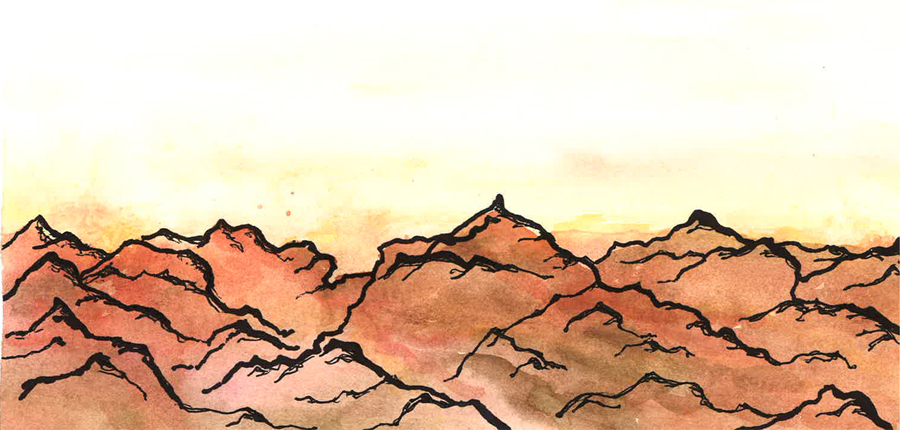Ruth 4v18-22
Epilogue (Part One)
(Click here to listen to the seventh teaching of Ruth)
Verse of the Week
“SEEK THE LORD AND HIS STRENGTH: SEEK HIS FACE CONTINUALLY” 1 Chronicles 16v11 NASB
More Word from the Father
1 Corinthians 10v1-14
1 Peter 3v3-6
1 Peter 5v6,7
1 Peter 4v8
1 Corinthians 13
Psalm 23
From my Heart
Who Am I?
“I do not want you to be unaware, brethren…with most of them God was not well-pleased…” (1 Corinthians 10v1, 5)
What a terrible and terrifying indictment! In referring back to “our fathers,” God gives this less-than-satisfactory summary of their lives. Then He gives a list: they craved evil things, they were idolaters, they acted immorally, they grumbled…
Uh-oh, sounds like me. I fit right into that list.
“Now these things happened to them as an example and they were written for our instruction…” (1 Corinthians 10v11)
Okay, I see. Instead of condemning them as hopeless, God writes their stories to show me what I ought to be like and what I should avoid at all costs. Instead of just issuing commands, He gives me examples, both good and bad. And that’s why we study the lives of the men and women recorded in Scripture.
The Old Testament is rich with stories. Between the tragic tales in the book of Judges and the trying escapades recorded in the books of Samuel lies this almost hidden gem of Ruth. Each character is easily identifiable. I can relate to Ruth, grieve with Naomi, give up on Orpah, shun those women around the well, and fall head over heels in love with Boaz. Yet these stories are meant for more than a history lesson. They are intended to instruct us in the ways of Yahweh and in the tendencies of His followers. We would do well to read carefully, to put ourselves in the places the Patriarchs walked, to listen, and to learn.
Let’s take a look at the characters in the story of Ruth to see how we measure up.
Naomi
She let Satan’s lie sink straight to her bones. It’s a lie he’s been using since the beginning of mankind - the idea that God is holding back His goodness; that He just might not have our best interests in mind. That He’s not nice. And as long as she nourished that little tidbit of falsehood, Naomi failed to thrive. She grew bitter and joyless. Hesed was happening all around her and she just couldn’t taste it.
Is that me? Am I feeling sorry for myself? Am I inwardly dissatisfied with God’s provision for me? Is all my worry and fussing an indication that I don’t really, honestly believe that He is able and willing to take care of me and mine?
Ruth
She went after God with the most appealing combination of humility and determination. Nothing would stop her; not the disapproval of people, nor the scolding of Naomi. Not even the looming specter of starvation could deter her. That girl poured every inch of her heart into pursuing God. And in the process, she won over her skeptics. By dying to her dreams, Ruth stepped right under the shadow of the wings of the Almighty, allowing Him to write her happily-ever-after ending.
What about me? Have I grown somewhat lackadaisical in my personal pursuit of God? Kinda lazy? Expecting Him to throw me a bit of wisdom just when I need it instead of storing up His treasures every opportunity I can grab? Am I gleaning - hot and sweaty out in the fields, searching for food?
Orpah
She gave up. Too hot, too hard, she turned back to the easier way. The old way. Orpah turned to the idols she was comfortable with rather than risk following Yahweh. Those idols of her heart gave her a sense of quick satisfaction.
What idols do I turn to? How about you?
A glass of wine, a bowl of ice cream to ease the stress of the day? An ungodly boyfriend? How about a shopping spree to pick me up? Or a mindless movie? What do I turn to? When I am all poured out, how do I fill back up?
The servant in charge
I like this guy. When Boaz inquired about the new worker in the field, the supervisor gave a glowing report about her progress. He made sure that her reputation was unblemished and utterly honest. Not one mention of any unrest among the other workers at her presence. No words of gossip or innuendo. He praised her hard work and let Boaz know that she was a welcome addition to his fields.
Do I do that? Or am I quick to point out the faults and flaws of others? Am I poking my nose in business I really don’t need to know? Can I be depended upon to let other’s share their own stories, knowing when it’s their story to tell and not mine? Am I willing to keep my mouth shut on stuff that doesn’t really matter? Do I believe the best about people?
The women
Twice in the story we hear of them. Once, right at the beginning when Naomi dumps her load of bitterness all over them in an unsolicited display of drama. And then again, right towards the end when they turn around and bless her. These women jump into the story with their own unsolicited commentary, making sure that Naomi knows and notices the good hand of God in her life. They bless God and they bless Naomi in a sort of sing-song vision for her future happiness.
Is that my tendency? Do I listen unjudgmentally when my sisters need to unload on me? Or do I lift my shotgun of Bible verses at them and blast away? These precious friends let Naomi vent without censorship. They listened. They watched. And then they applauded her story, giving God a standing ovation of praise. How must the angels have grinned! Maybe they joined in.
What about my kids? Do I let them question and complain from time to time, or do I shut them down and shame them for their rawness? One thing about the book of Ruth, the Author didn’t leave anything out. Nor did God defend Himself. He just let the story play out to its conclusion, letting lessons be learned little by little, all in good time.
And then of course, there’s Elimelech
He ran. He lost sight of what was most important (his relationship with God) and lost himself in the pursuit of pleasure and plenty. And he died doing it. What about his sons? There’s no telling how old they were when they left the Promised Land to follow their dad to Moab, but they were certainly old enough to decide for themselves to marry those Moabite women. They died too.
Oh, there are lessons to be learned alright. Life lessons to soak in and savor. The book of Ruth is rich with wisdom and insight into the Kingdom of God compared to the comforts of life.
While you read it, lean a little closer and listen carefully.
From my heart,
Diane
ETC
Four Women
The genealogy at the end of Ruth is copied almost verbatim in the genealogy of Jesus found in the first chapter of Matthew. One significant addition, however, differentiates the lists. In Jesus’ genealogy, the names of four women are highlighted - Tamar, Rahab, Ruth, and Bathsheba. Why did the author include these four women? The inclusion of any women would have been considered inappropriate at the time of the writing. The place of women in society was downplayed; they were considered insignificant to the story. But these women were something of a black spot on the family tree. Why mention them at all? There must be a reason.
As we delve deeper into their stories, take some time to examine what these tales tell us about the women - and about the God they adopted as their own.
Ten Generations
Perez
Hezron
Ram
Amminadab
Nahshon
Salmon
Boaz
Obed
Jesse
David




